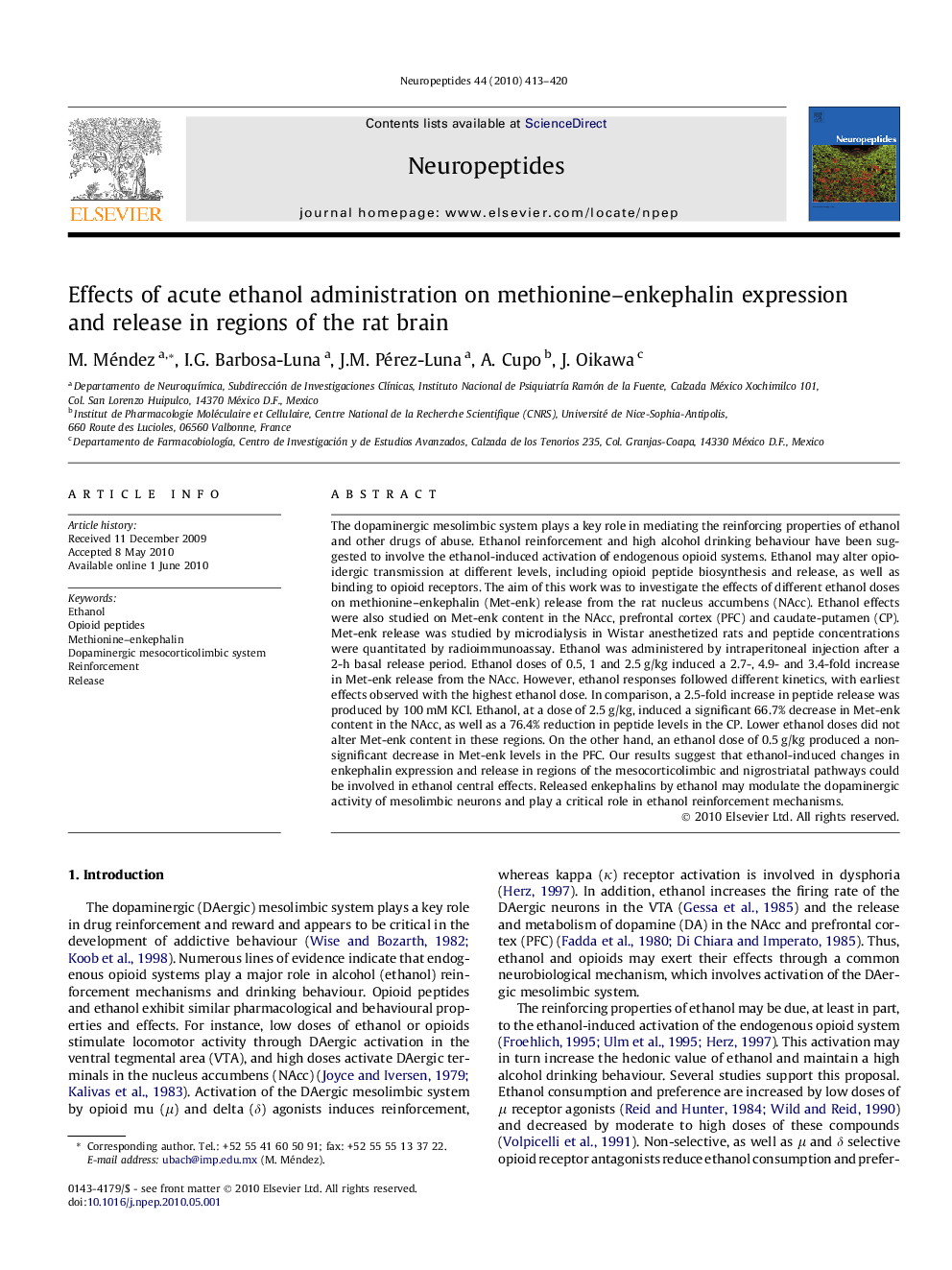| Article ID | Journal | Published Year | Pages | File Type |
|---|---|---|---|---|
| 2808209 | Neuropeptides | 2010 | 8 Pages |
The dopaminergic mesolimbic system plays a key role in mediating the reinforcing properties of ethanol and other drugs of abuse. Ethanol reinforcement and high alcohol drinking behaviour have been suggested to involve the ethanol-induced activation of endogenous opioid systems. Ethanol may alter opioidergic transmission at different levels, including opioid peptide biosynthesis and release, as well as binding to opioid receptors. The aim of this work was to investigate the effects of different ethanol doses on methionine–enkephalin (Met-enk) release from the rat nucleus accumbens (NAcc). Ethanol effects were also studied on Met-enk content in the NAcc, prefrontal cortex (PFC) and caudate-putamen (CP). Met-enk release was studied by microdialysis in Wistar anesthetized rats and peptide concentrations were quantitated by radioimmunoassay. Ethanol was administered by intraperitoneal injection after a 2-h basal release period. Ethanol doses of 0.5, 1 and 2.5 g/kg induced a 2.7-, 4.9- and 3.4-fold increase in Met-enk release from the NAcc. However, ethanol responses followed different kinetics, with earliest effects observed with the highest ethanol dose. In comparison, a 2.5-fold increase in peptide release was produced by 100 mM KCl. Ethanol, at a dose of 2.5 g/kg, induced a significant 66.7% decrease in Met-enk content in the NAcc, as well as a 76.4% reduction in peptide levels in the CP. Lower ethanol doses did not alter Met-enk content in these regions. On the other hand, an ethanol dose of 0.5 g/kg produced a non-significant decrease in Met-enk levels in the PFC. Our results suggest that ethanol-induced changes in enkephalin expression and release in regions of the mesocorticolimbic and nigrostriatal pathways could be involved in ethanol central effects. Released enkephalins by ethanol may modulate the dopaminergic activity of mesolimbic neurons and play a critical role in ethanol reinforcement mechanisms.
